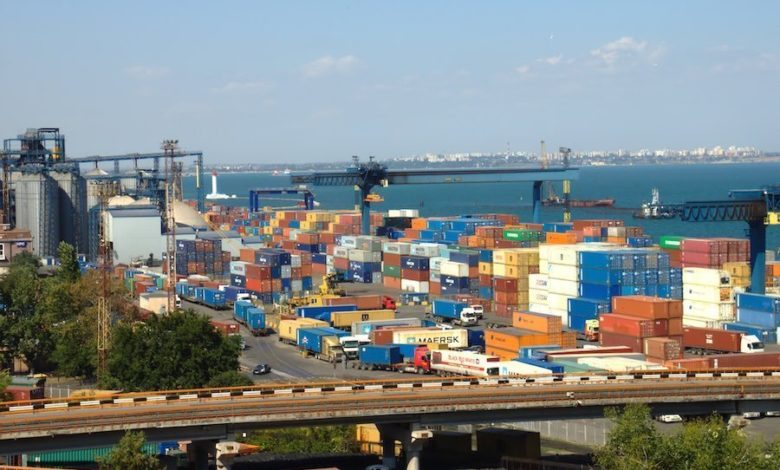Ukraine’s maritime industry must do more to be trusted

Ivan Niyakii, the vice president of the Ukraine Maritime Chamber and CEO of Craneship, writes for Splash today on his wish list to make his country a stronger merchant marine power.
Ukraine’s maritime industry is not trusted. Its market participants, international investors, and supranational organizations find much to distrust about Ukraine’s civilian fleet. We remain in the ‘Grey List’ of the Paris MOU, stories of corruption saturate the airwaves and the recent war fervor all serve to reduce Ukraine’s maritime credibility. As a CEO of a major Ukrainian shipping company, I can say clearly – this makes doing honest business difficult. The solution lies in structural reform of Ukraine’s Ministry of Infrastructure, but is not limited to it. The government and private companies both are responsible for building trust with the industry’s stakeholders.
First, some background. During the 70 years of Soviet rule, communications practice and even the idea of corporate reputation was not a consideration for industry leaders. In the 90s, communications took a dark turn – competitors set each other up and pursued negative campaigns. As Ukraine matured, the 00’s and 2010’s saw a renaissance of the PR industry, reputation became important and finally with 2014’s turn towards Europe, Ukraine’s media started to transform to become more European. But Ukraine’s maritime industry ran aground and got stuck in the 00’s.
My industry colleagues and I see three core communications needs that the infrastructure ministry and maritime trade associations should undertake. First, clear communication of positive reforms to market participants and international partners, secondly, capacity building of maritime private and public sector personnel on how to communicate, and lastly, the development of a comprehensive framework for engagement with civil society – in Ukraine and globally.
First, Ukraine’s recently appointed Infrastructure Minister, Oleksandr Kubrakov, has already carried out important reforms in the maritime industry. Ukrainian sailors will undertake exams in English, in a digital format, and aligned to global maritime standards. This is a significant reform that will significantly improve the level of qualification of Ukraine’s sailors while also reducing corruption. But if a tree falls with no one to hear it – what’s the point?
Market participants need to know about how positive developments will affect them, while international organizations and industry unions need to know that the regulator is on the right path to improving the business climate of Ukraine’s maritime industry. Regular press conferences, wider use of social media, and policy signalling speeches from the Minister himself will bring the Ministry of Infrastructure up to international standards.
Secondly, few market participants in Ukraine’s maritime industry have meaningful public relations capability. If Ukraine’s maritime industry is to go global – this must change. Considering the significant global attention paid to Ukraine right now, Ukraine’s maritime companies are in a prime position to build trust with stakeholders – from international organizations to business partners. Maritime executives should be making their stance clear on key industry issues, join trade associations, and make better use of company websites as well as social media. Communicating what a company is good at and how its becoming more reliable is key to going global.
Finally, if Ukraine is to continue adopting European values, the maritime industry must become an environmental and social stakeholder in society. A core component of improving industry culture is better engagement with civil society groups in the sustainability and social progress space. Both regulator and industry alike would benefit greatly from listening more to what domestic and international civil society groups have to say. On many issues, most visibly sustainability, NGOs are the best experts to turn to. As shipping companies, we need to drop the blinkers and speak to concerned activist groups about what part we can play in the global fight against the climate emergency, as well as biodiversity conservation in the Black Sea. Not only is engagement with civil society important for Ukraine’s global image, but it will also inspire young talents to choose the maritime industry for the right reasons. Young people are increasingly conscious of issues like sustainability and company purpose – to recruit the best, it is up to companies to be progressive on key issues. Ukraine’s regulators could start by setting up a consultative body for civil society organizations, while industry participants should expand corporate social responsibility practices.
Ukraine has the fundamentals of strong civilian fleet. It is blessed with some of the best-placed Black Sea ports. The next step is for Ukraine’s industry and regulators to build trust amongst themselves, with Ukraine’s society at large, and with global partners. A key pillar to building trust is better communications. Regulators should speak clearly with companies and should communicate positive reforms better. Industry players should improve their ability to communicate to go global. Regulator and industry both should do more to engage civil society and develop a stronger culture in the maritime industry.
